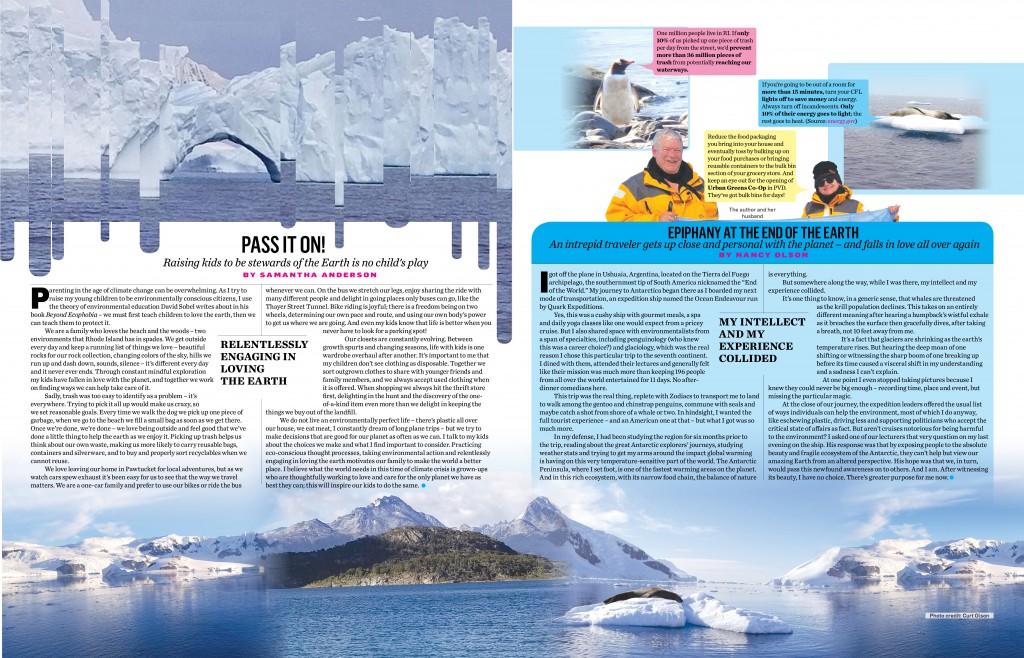 I got off the plane in Ushuaia, Argentina, located on the Tierra del Fuego archipelago, the southernmost tip of South America nicknamed the “End of the World.” My journey to Antarctica began there as I boarded my next mode of transportation, an expedition ship named the Ocean Endeavour run by Quark Expeditions.
I got off the plane in Ushuaia, Argentina, located on the Tierra del Fuego archipelago, the southernmost tip of South America nicknamed the “End of the World.” My journey to Antarctica began there as I boarded my next mode of transportation, an expedition ship named the Ocean Endeavour run by Quark Expeditions.
Yes, this was a cushy ship with gourmet meals, a spa and daily yoga classes like one would expect from a pricey cruise. But I also shared space with environmentalists from a span of specialties, including penguinology (who knew this was a career choice?) and glaciology, which was the real reason I chose this particular trip to the seventh continent. I dined with them, attended their lectures and generally felt like their mission was much more than keeping 196 people from all over the world entertained for 11 days. No after-dinner comedians here.
This trip was the real thing, replete with zodiacs to transport me to land to walk among the gentoo and chinstrap penguins, commune with seals and maybe catch a shot from shore of a whale or two. In hindsight, I wanted the full tourist experience — and an American one at that — but what I got was so much more.
In my defense, I had been studying the region for six months prior to the trip, reading about the great Antarctic explorers’ journeys, studying weather stats and trying to get my arms around the impact global warming is having on this very temperature-sensitive part of the world. The Antarctic Peninsula, where I set foot, is one of the fastest warming areas on the planet. And in this rich ecosystem, with its narrow food chain, the balance of nature is everything.
But somewhere along the way, while I was there, my intellect and my experience collided.
It’s one thing to know, in a generic sense, that whales are threatened as the krill population declines. This takes on an entirely different meaning after hearing a humpback’s wistful exhale as it breaches the surface then gracefully dives, after taking a breath, not 10 feet away from me.
It’s a fact that glaciers are shrinking as the earth’s temperature rises. But hearing the deep moan of one shifting or witnessing the sharp boom of one breaking up before its time caused a visceral shift in my understanding and a sadness I can’t explain.
At one point I even stopped taking pictures because I knew they could never be big enough — recording time, place and event, but missing the particular magic.
At the close of our journey, the expedition leaders offered the usual list of ways individuals can help the environment, most of which I do anyway, like eschewing plastic, driving less and supporting politicians who accept the critical state of affairs as fact. But aren’t cruises notorious for being harmful to the environment? I asked one of our lecturers that very question on my last evening on the ship. His response was that by exposing people to the absolute beauty and fragile ecosystem of the Antarctic, they can’t help but view our amazing Earth from an altered perspective. His hope was that we, in turn, would pass this newfound awareness on to others. And I am. After witnessing its beauty, I have no choice. There’s greater purpose for me now.

